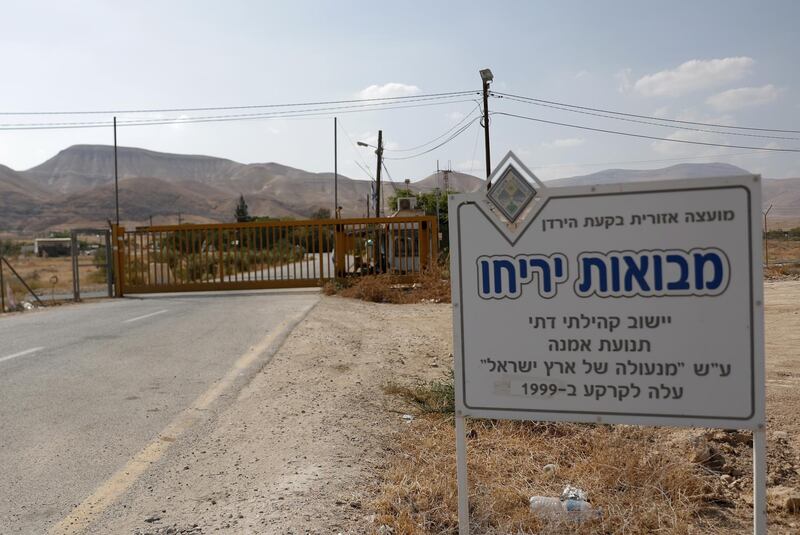The Organisation of Islamic Co-operation has expressed its "total rejection" of plans by Israeli Prime Minister Benjamin Netanyahu to annex another part of the occupied West Bank, two days before Israel's repeat election.
Mr Netanyahu convened his Cabinet at the illegal outpost of Mevoot Yericho in the Jordan Valley on Sunday, where the approval to legalise the settlement was sealed.
He has pledged to annex the Jordan Valley if he is voted in on Tuesday.
The OIC organised an emergency meeting of foreign ministers in Jeddah to express "its total rejection and strong condemnation of the Israeli Prime Minister's declaration".
"This dangerous declaration deliberately undermines international efforts to achieve a just and lasting peace and pushes the whole region towards further violence and instability," the 57-member body said in a statement.
On Wednesday, Saudi Arabia and the UAE called the proposals, which had not been approved at that point, a "dangerous escalation".
Israel's Attorney General Avichai Mandelblit had initially ruled that legalising the outpost would not be allowed before this week's election, because it could be viewed as propaganda to sway voters.
But he withdrew his objection for reasons that remain unknown.
Most of the global community considers the Jewish outposts in the occupied West Bank to be illegal under international law.
About 30 families live in the outpost, which was established in 1999.
Israeli settlers regularly set up caravan homes at sites in the West Bank with the hope of eventually gaining government approval for a settlement, which has happened repeatedly.
"The government passed the PM's motion to build Mevoot Yericho," Mr Netanyahu's office said as the weekly Cabinet meeting was convened ceremoniously in the Jordan Valley.
He has also said he intends to annex settlements in the wider West Bank, but in co-ordination with US President Donald Trump, whose long-awaited peace plan is expected to be released after the election.
Mr Netanyahu's annexation plans could destroy any remaining hopes for a two-state solution to the Palestinian-Israeli conflict.
The Palestinians, the EU and the UN condemned the Jordan Valley announcement last week.
Mr Netanyahu said the Jordan Valley annexation would not include Palestinian cities such as Jericho, but those centres would effectively be encircled by Israeli territory.
He is locked in a tough re-election battle with former military chief Benny Gantz and his Blue and White centrist alliance, and right-wing nationalist votes are crucial for his Likud party.
About 400,000 Israeli settlers live in the West Bank alongside about 2.6 million Palestinians.
The settlements are major stumbling blocks to peace as they are built on land the Palestinians see as part of their future state.






